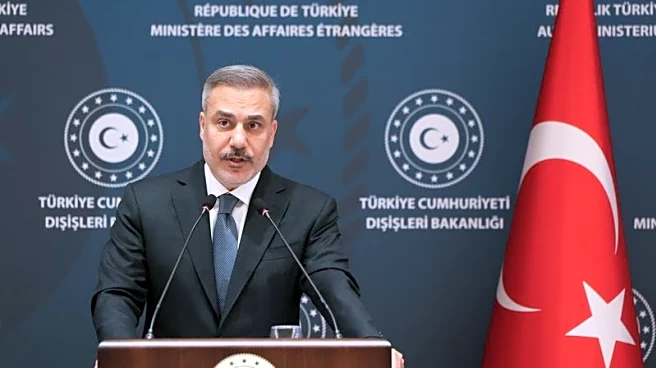What's Happening?
President Donald Trump announced plans to import beef from Argentina in an effort to address the high beef prices in the United States. The decision comes as domestic beef supply has been affected by drought
and a flesh-eating pest, leading to increased prices. Trump made the announcement while traveling from Florida to Washington, DC, emphasizing that importing beef from Argentina could help reduce costs for American consumers. This move is part of Trump's broader strategy to address inflation, a significant concern for voters that played a role in his re-election in 2024. Additionally, the Trump administration has been working to support Argentina's economy, led by libertarian President Javier Milei, with a $20 billion bailout to prevent an economic crisis.
Why It's Important?
The decision to import beef from Argentina is significant as it addresses the ongoing issue of inflation, particularly in food prices, which has been a major concern for American consumers. By potentially lowering beef prices, the Trump administration aims to alleviate some of the financial pressures on households. This move also highlights the interconnectedness of global economies, as the U.S. seeks to stabilize its market by engaging in international trade. Furthermore, the support for Argentina's economy through a substantial bailout reflects the administration's foreign policy strategy and its impact on domestic economic conditions. However, this decision may face criticism from domestic beef producers and some factions within Trump's political base, who may view the importation as a threat to local industries.
What's Next?
The implementation of beef imports from Argentina will likely involve negotiations and logistical arrangements to ensure a steady supply chain. The administration may face scrutiny from domestic agricultural stakeholders and political opponents who could argue against reliance on foreign imports. Additionally, the impact on beef prices will be closely monitored, as it could influence public perception of Trump's economic policies ahead of the midterm elections. The administration's support for Argentina may also lead to further diplomatic engagements and economic collaborations between the two countries.










